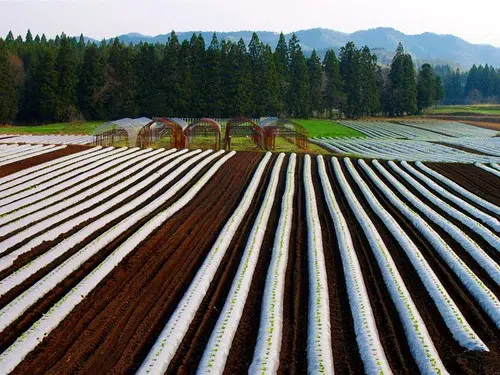There are growing calls for the New Brunswick government to reverse its controversial ban on temporary foreign workers (TFWs).
The ban was announced on April 28 by Premier Blaine Higgs, who said the risk of allowing more people to enter the province is simply too great.
But three agricultural groups in the province say the ban is putting New Brunswick’s already strained food system on the verge of collapse.
Officials with the National Farmers Union in New Brunswick, the Agricultural Alliance of New Brunswick and Really Local Harvest held a joint news conference on Thursday.
Kent Coates, president of Really Local Harvest, said he has relied on temporary foreign workers on his farm for the past few years.
“We have eight weeks of planting in the spring, we have eight weeks of harvest in the fall, and every week in between is critical. I’ve had to choose over the last weeks to either plant my crops or cope with replanning my entire staffing plan,” said Coates.
“Without both of these critical components, I will have no crops. Three weeks of the planting season has been consumed by this decision as I try to balance components of each without the time nor resources to complete either.”
Many other farms are facing a similar situation, trying to figure out how they will plant their crops with fewer workers.
‘Our Food System Is Fragile’
According to the three groups, the province already relies heavily on food brought in from outside New Brunswick.
The province introduced measures to replace TFWs with students and unemployed New Brunswickers, but the executive director of the National Farmers Union said those efforts have proved unsuccessful.
Suzanne Fournier said many farms have had to make difficult decisions to significantly reduce their production as a result.
“Our food system is fragile, and without temporary foreign workers, New Brunswick farms will not be able to increase their capacity for producing local food,” said Fournier.
An internal membership survey performed by the organizations found at least $7 million in production will be lost as a result.
The province recently updated their ban on TFWs to allow any who have been in Canada prior to April 28 into New Brunswick.
But Lisa Ashworth, president of the Agricultural Alliance of New Brunswick, said those who are already in Canada to work on farms have places of employment and are not looking for jobs here.
Ashworth said the federal government has taken steps to mitigate public health risks, such as requiring seasonal workers to quarantine for 14 days after arriving in Canada.
She said Nova Scotia and Prince Edward Island have not seen an increase in related COVID-19 cases since allowing temporary foreign workers into their provinces.
“Our province’s ban has at least allowed officials time to see that the federal protocols do protect public health safety,” she said.
The premier said Wednesday decisions will be made in the next few days if they cannot fill the roster of vacant jobs.




